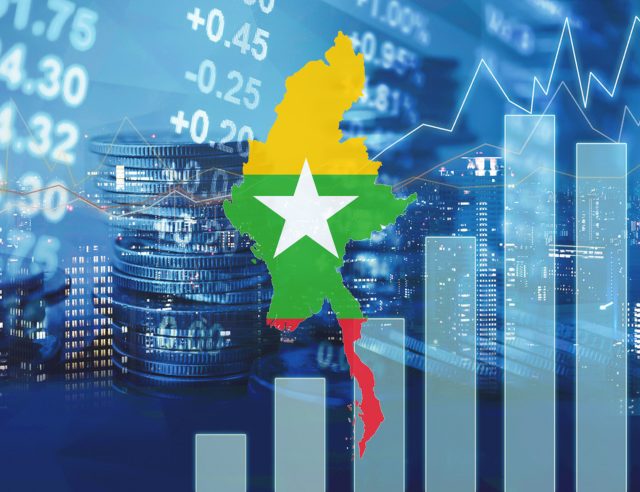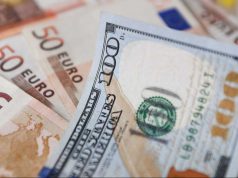Fact: Myanmar has become the poorest country in South East Asia (ASEAN) in 2019, in terms of GDP per capita (World Bank Statistics 2020). This is probably one important economic performance of NLD administration under Su Kyi, through the use of so called foreign experts numbered over 90. Her team promised to surpass Singapore, overtake ASEAN and for the economy to shoot up like a rocket. The promises have never been further away from the truth! After all those involved in elections fraud and treason against the country were detained in February of 2021, the burden of stabilizing the country and the economy falls onto the shoulders of this current interim administration. It has been nearly nine months. Economic experts at MI would like to recommend a few key actions that this government could take, to stabilize the economy to take it towards the next stage of growth.
Law and Order
Bank robberies, senseless assassinations, terrorism, bombing campaigns against public infrastructure and innocent civilians have to be stopped. NLD/NUG/PDF/CRPH (NNPC) all have to face justice for terrorism and murders committed. This has to be done quickly so that business people can regain confidence in the country law and order situation and especially the police force. Currently it seems military has to carry out the duties of the police force to enforce law and order. It would be such an irony if the military has to continue to provide protection for the police force!
Currently for criminal cases, even if one report to the police station, policemen (majority) would give a thousand and one reasons, on why they cannot find or arrest the criminals or initiate cases. The excuses can range from current state of affairs to ward instability to being unable to find that person to having not enough personnel to police themselves facing attacks. Whatever the case, it definitely does not bring confidence on the law and order situation in Myanmar. With that basic inconfidence, how do we continue to invest in the economy? Without investments, where would the economic growth come from? Our source from the military spoke of some rank-and-file policemen supporting the NNPC, through their years of connection with them during the last administration.
For civil cases, the courts are operating on and off. This does not help either. Businesses need continuity and rule of law and a proper justice system are essentials for efficient business operations. Imagine someone owes you a million dollar and do not pay up. We need courts to enforce the payment eventually. The courts cannot stay close!
Living with Covid
The current administration’s decision to open local travel and tourism again in October is a step in the right direction. Our regional countries are doing the same thing (page-25). With a significant percentage of the population having been vaccinated, the risk from COVID is mitigated compared to the infection risk even a couple of months ago. The governments are all realizing we have to live with COVID. Businesses cannot remain shut forever. People have to work to have an income.
Now the hotels and guest houses are reopening, especially in tourist areas. During the last Tha Din Gyut holidays (lantern festival), hotels in Chaung Thar and Ngwe Saung beaches are all fully booked. Once the entry of foreign tourists (vaccinated) are allowed in the near future, the hotel and tourism sector would be back to normal.
It also helps that regional countries are still either refusing entries to visitors from Myanmar or enforcing quarantine requirements. Local tourism sector is bound to benefit from this blockade on outbound travels, indirectly forcing the rich to spend their cash on local establishments.
Fiscal Stimulus
The government is not sitting idle either. Every day, government newspapers are filled with tender advertisements, deja vu of 2013/14 financial year. Government is carrying out expansionary fiscal policies, especially in terms of government spending. Major projects include dams, solar farms, roads and bridges and government infrastructure projects. This cannot continue on forever without corresponding improvement in the private sector; else, government coffers would run dry and the projects would crowd out private sector investments.
Monetary Policy Instruments
Regardless of notices that CBM (Central Bank of Myanmar) put out to remind the domestic commercial banks to return the savings to individuals and companies, customers have only been able to get back their money very slowly. Some banks are only giving out 20 Lakhs (~$1,000) per month only; retirees cannot even collect the full interest income earned on their savings. Some large businesses whose payroll range above 1000 Lakhs (~$50,000) per month are only able to withdraw 500 Lakhs per month. At the same time, if the depositor is willing to be a fee of 6 – 7% to the bank, one can take out as much of own savings as he/she wishes. If your saving or current account has $100, it means you would receive only $94 in withdrawal. The bank will take 6 – 7% as fees. The process itself is illegal, yet such activities are rampant. CBM has to crack these down. Else, the trust in local banks would be forever lost.
This is not just a financial crisis, but a crisis of confidence in the financial system and probably in Kyat. Too many banks (altogether around 40 local commercial banks in Myanmar) are too weak to even withstand a bit of shock, with little cash reserves and much bad loans. CBM has to let them fail. Myanmar economy cannot accommodate more than five local banks. Any number more than that, the banks would become weak.
Without a strong CBM, financial system would remain weak and consequently the economy. After the action on the banks, in order to take money out from savings into productivity, incentives to encourage investment and consumption should be initiated. Lowering interest rates would be one of the options. The confidence in Kyat is already low, inflation is likely to be already in double digits, due to high fuel, logistics and $ rate. We no longer need to peg the savings rate against the long term inflation rate; at least for the time being, as an essential measure to boost the economy and investments.
Privatization
Government still has assets that could be privatized; e.g., in order to eliminate billions of $ leakage into underground lotteries, Ministry of Finance is calling a tender to digitalize the current half-a-century old Myanmar Aung Bar Lay Lottery. Ministry of Finance could also do a rental review of all existing government premises leased out to private sector once and for all. Some of the rentals super low at 1990 prices, have to be revised. Some leased out during the hay days of U Thein Sein administration have to be adjusted downward as well.
At the time when all the businesses are short of cash and funds for investment, it would be better for the government to opt for long term lease, instead of direct sales, to maximize the revenues from sale of state assets.
We all cannot turn the economy into a new leaf overnight. Yet decisive actions based on sound judgment would not only build a good foundation for Myanmar economy, but also put us in a good position to compete against ever growing regional neighbors.










